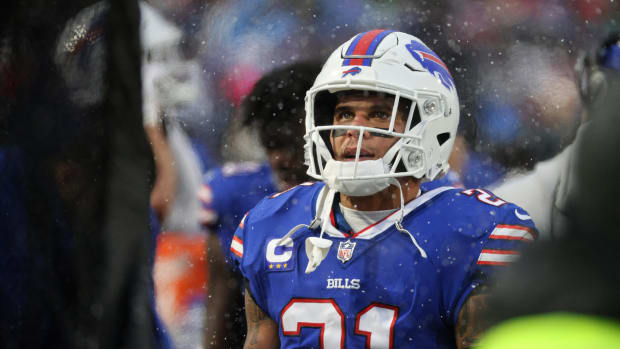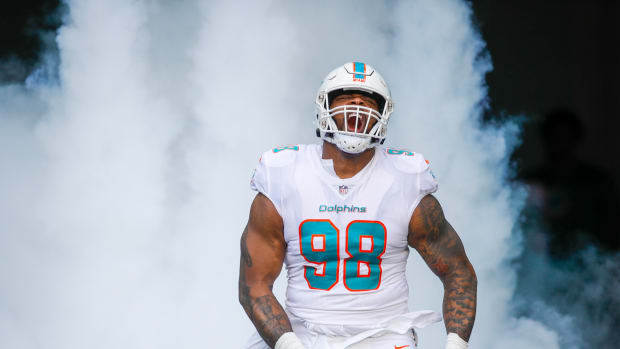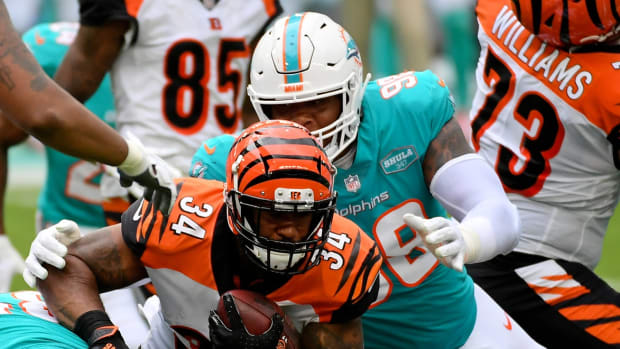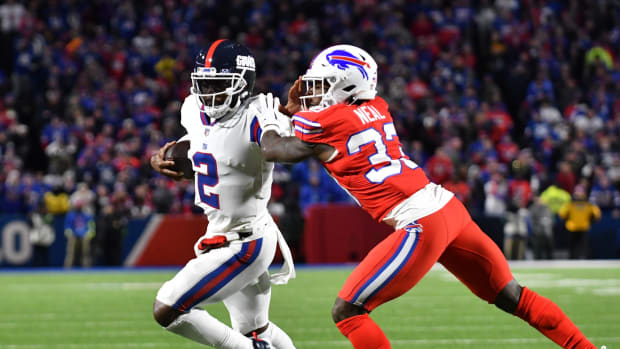
Kelly: Dolphins in Win-Now Mode, but Bills Will Be Due Soon
The Miami Dolphins better win big now because the franchise currently is living off what can be compared to massive credit card debt.
The credit card balance keeps rising with each Pro Bowl-caliber player added, and the debt that’s steadily accumulating will need to be paid down soon.
While I’m consistently preaching that the NFL’s salary cap isn’t real, often comparing it to Monopoly money because of its fictitious nature (dead money is paid to nobody unlike an NBA luxury tax), the more an owner like Steve Ross pays in signing bonuses and roster bonuses to skirt the system, the more of a financial mess it potentially creates for the team down the road.
While limited cap space has never stopped a team from making any transaction a franchise REALLY wanted to, there comes a time when the credit card balance has to be paid off.
For the Dolphins, that appears to be the 2024 offseason because the team has $187.5 million in cap space allocated to eight players in 2024.
Receiver Tyreek Hill ($31 million), cornerbacks Jalen Ramsey ($27.2 million) and Xavien Howard ($26 million), pass rusher Bradley Chubb ($26.9 million), quarterback Tua Tagovailoa ($23.2 million on his fifth-year option), offensive lineman Terron Armstead ($20.6 million), defensive end Emmanuel Ogbah ($17.8 million), and linebacker Jerome Baker ($14.9 million) account for 73 percent of the projected cap of $256 million for the 2024 season.
EXPENSIVE FREE AGENT CLASS ON HORIZON
Unless Ross pays more players substantial signing and roster bonuses to create additional cap space (which is likely considering his history), that leaves $68.5 million to re-sign key players like defensive linemen Christian Wilkins, Raekwon Davis, Zach Sieler, offensive linemen Robert Hunt and Connor Williams, and safety Brandon Jones, who all are expected to become free agents next offseason unless deals get done in 2023.
That doesn’t even factor in upgrading the roster via trades and free agents signings, which the franchise typically prefers to do, or getting the 2023 and 2024 draftees under contract.
And keep in mind that’s probably the offseason young standouts like Jaylen Waddle, Jaelan Phillips and Jevon Holland will be seeking new contracts because they'll be heading into their fourth season.
This all means Miami potentially will be facing nearly a dozen tough financial decisions a year from now.
It also provides more evidence the Dolphins are in a win-now window, at least for the next two years.
Considering the Dolphins began this offseason $15 million over the cap, and maneuvered the books by restructuring contracts and releasing players to put the franchise $25 million under, it’s not wise to say Miami’s aggressive spending the past three seasons will handcuff the team in the future.
But as I’ve continued to point out, at some point the credit card balance is due, and paying it off requires some belt tightening.
The Los Angeles Rams built a Super Bowl winning team using this model, then were forced to make some tough financial decisions this offseason to fix their books. That’s how Miami ended up with Ramsey in the offseason trade.
The same kind of belt tightening could be on the horizon for the Dolphins within the next two seasons.
Releasing Ogbah ($15.8 million), Baker ($9.9 million), and receiver Cedrick Wilson Jr. ($7 million) after next season potentially could create $32.7 million in cap space. But what happens if all three have respectable seasons that justify their salaries?
The Dolphins also could sign Tagovailoa, Wilkins and Williams to multi-year deals that makes their cap figure more manageable now and in the future. But those are long-term decisions that likely require some patience.
Since Ross has been Miami’s owner, the franchise traditionally has done well managing the team's payroll. The Dolphins typically carry $10-15 million in cap carryover to the next season and usually have the freedom to make major moves each offseason.
But the recent approach of trading draft picks for elite players (Hill, Chubb, Ramsey), and then signing them to massive contracts has created some accounting challenges that the Dolphins must figure out ways to manage.





